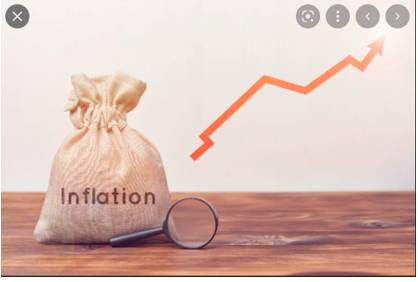
Recent data confirms that inflation has become entrenched in the economy. RBI will have to act firmly and swiftly
On Tuesday, data released by the government showed that inflation at the wholesale level had risen to a staggering 15.08 per cent in April, up from 14.55 per cent in March, despite a high base effect. With this latest print, wholesale inflation has now been in double digits for 13 consecutive months. Coming just days after data released by the National Statistical Office that showed retail inflation as measured by the consumer price index had risen to an eight year high of 7.8 per cent in April, this latest data print only reaffirms the inflationary pressures in the economy.
The sharp spurt in wholesale inflation is driven by all major categories — primary articles, fuel and power and manufacturing — indicating how broad-based the price pressures are. All three sub-groups registered double digit inflation in April. The WPI food index has also risen to 8.88 per cent in April on the back of higher prices in vegetables, fruits, milk and spices. Considering that an increase in food inflation at the wholesale level tends to have a “significant” impact on inflation at the retail level, this is a matter of concern. As per the recently released report by the RBI on the state of the economy, high frequency price data on food items for the first half of May (1-12) indicates “an increase in cereal prices, primarily on account of a surge in wheat prices”, a hardening of potato and tomato prices, and a “broad-based increase” in edible oils. This is worrying, as Ashima Goyal, member MPC, points out, “the history of past shocks in India shows food and oil price inflation together can give rise to second round effects”. On the non-food side, the latest data also shows that manufacturing inflation rose to 10.85 per cent in April, up from 10.71 per cent the month before. With cost pressures on manufacturers continuing to rise, they are likely to pass them further on to end consumers, exerting upward pressure on prices at the retail level. And then there are also concerns over services inflation firming up as demand picks up.
In the first week of May, the monetary policy committee of the RBI had held an off-cycle meeting to raise the benchmark repo rate by 40 basis points to 4.4 per cent to tackle inflation. This implied that hikes of another 75 basis points would be needed just to revert to the pre-pandemic level — MPC member Jayanth Varma has said that “more than 100 basis points of rate increases need to be carried out”. Considering current price trends which suggest that inflation will continue to remain elevated, and likely to breach the upper threshold of the RBI’s inflation targeting framework for three consecutive quarters, the MPC is likely to frontload the rate hikes.



